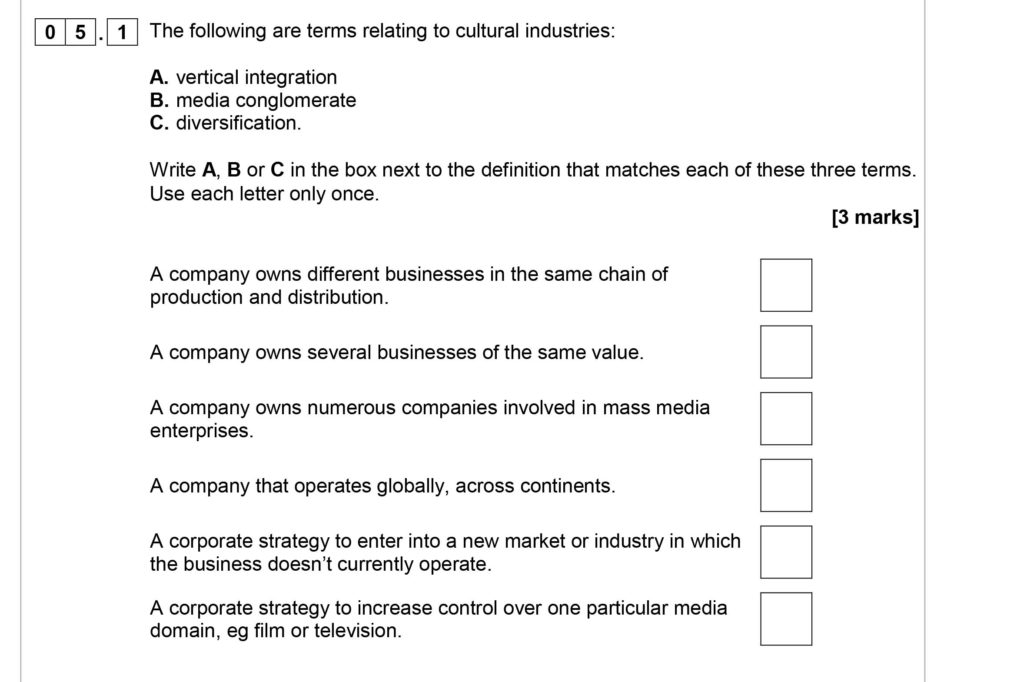Cultural industries – an economic field which involves the producing, distributing and exhibiting of music, television, movies, publishing etc…
Production – the process of making a motion picture, television show, video commercial, internet video or any other viewable programming
Distribution – the process of delivering products to audiences through advertising and marketing campaigns
Exhibition / Consumption – the retail branch of the film industry/ when the media is taken in by individuals or a group
Media concentration – when a company integrates its ownership of different media sectors (production, distribution, exhibition) with other companies This means that as time progresses, less and less companies or institutions control the share of mass media
Conglomerates – a company that owns multiple companies involved in mass media enterprises such as television, radio, publishing etc…
Globalisation (in terms of media ownership) – the worldwide integration of media through the cross-cultural exchange of ideas
Cultural imperialism – a theory regarding the fact that the western world dominates the ideas and influence of the media industry by imposing western views, often destroying native culture
Vertical Integration – when a company owns different businesses in the same chain of production, distribution and/or exhibition
Horizontal Integration – when a company owns other companies that performs the same part of the production, distribution or exhibition process as them
Mergers – when two or more existing companies unite creating one new company, often to expand a companies reach or gain market share
Monopolies – concentrated control of major mass communications within a society
Gatekeeper – a company who filters the information sent out to the public in order to create a certain message
(Mass Media) Regulation – rules enforced by the jurisdiction of law regarding how the media industry is owned and controlled, often to protect a stated ‘public interest’
(Mass Media) Deregulation – the process in which a government removes rules previously enforced by the jurisdiction of law regarding how the media industry is owned and controlled
Free market – a market when voluntary exchange and the laws of supply and demand provide the sole basis for the economic system, without government intervention
Commodification – the act of turning something into an item that can be bought or sold
Convergence – a circumstance involving the interconnection of information and communication technologies and media content eg, a phone which allows you to read the news as well as just make phone calls
Diversity – a corporate strategy used to enter into a new market or industry in which the business does not currently operate
Innovation – the process of not just an “invention” of a new value for journalism, but also the process of implementing this new value in a market or a social setting to make it sustainable.

